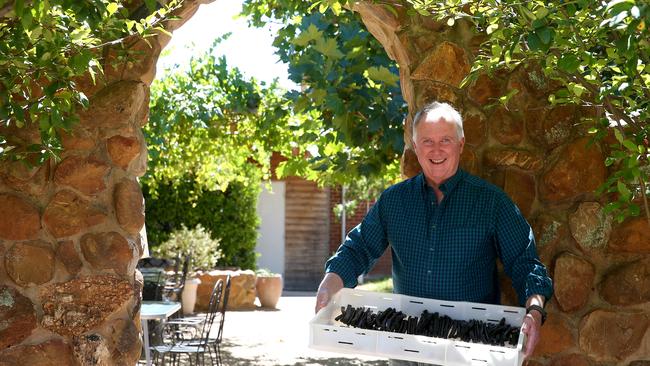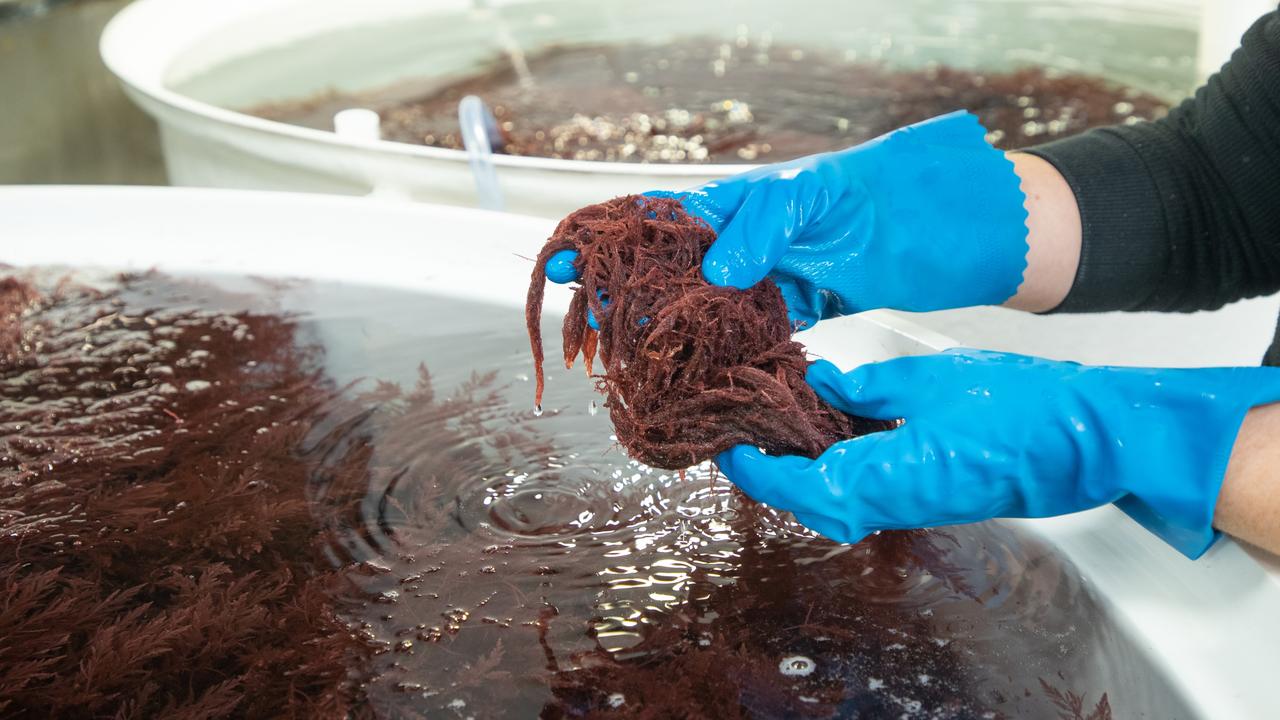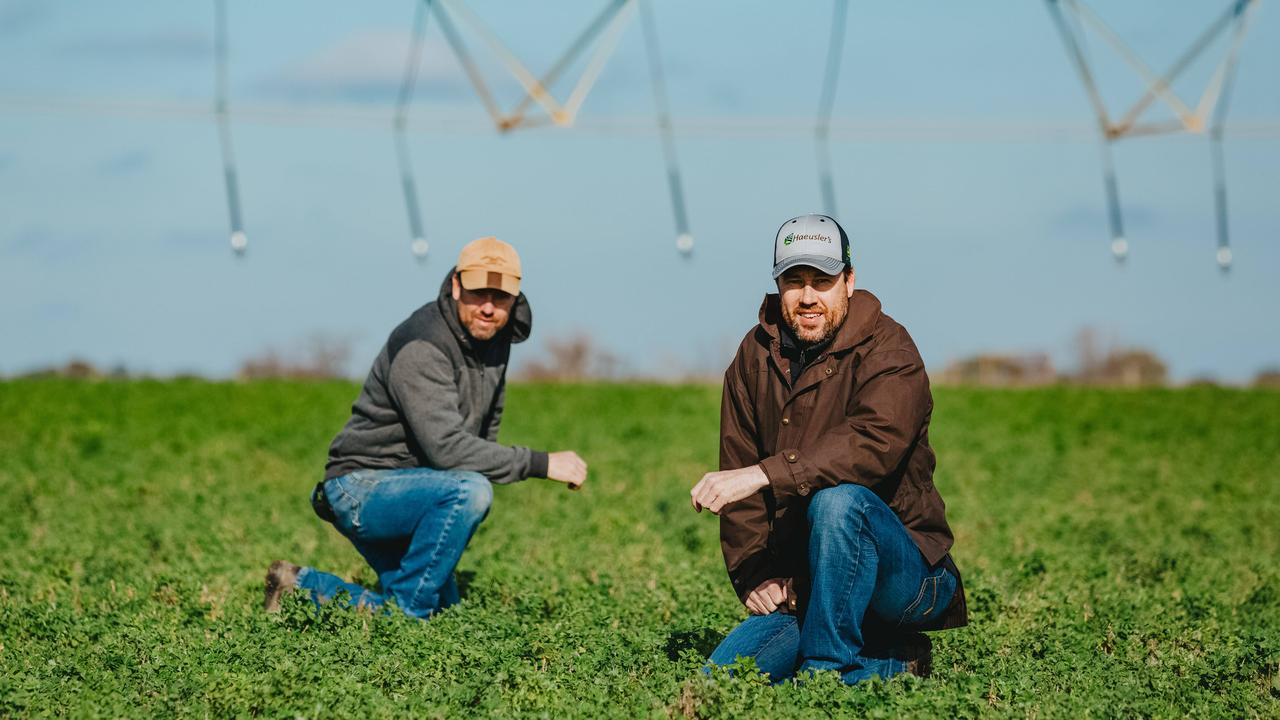Junee Licorice and Chocolate: The Druce family transforming a farm to a business
NEIL Druce is following in the trailblazing footsteps of his father, Alan, who brought organic methods to the family farm 50 years ago. Now his son is transforming their grains and their business making licorice.
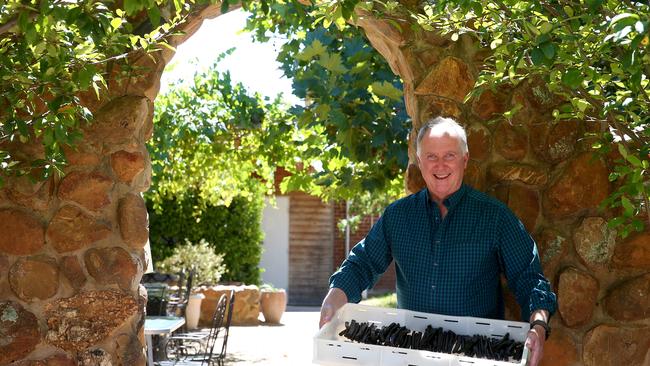
BLACK GOOINESS SPIRALS FROM the machine and an intense aniseed aroma fills the air.
“What we do here is value-add our wheat,” says Neil Druce, owner of the Junee Licorice Factory in Junee, central NSW.
“I don’t want to do pasta, pies or bread. Yes, licorice is crazy, but it’s good because no one else was doing organic licorice in the southern hemisphere.”
Crazy is one way to describe the ingenious idea Neil had to make licorice from wheat and spelt grown on his family’s Green Grove Organics farm at Ardlethan, 100km northwest of Junee in the NSW Riverina.
Since first starting to process the cereal crop in Junee’s historic flour mill in 1998, Neil has grown the business to mill 47 tonnes of wheat and spelt from the farm, manufactured into 38 tonnes of flour, which goes into 125 tonnes of licorice a year, on average.
Neil runs the factory – opened to the public in 2002 – with his wife, Coral, daughter, Rhiannon, 23, and son, Mitchell, 26, while their third child, Dean, 28, runs the family’s other venture – Corowa Whisky and Chocolate – in southern NSW, which will next year make whisky from Green Grove Organics’ barley.
As impressive as Neil’s vision is for transforming the farm’s crops into products to sell to the public, the true patriarch of the Druce family, and the man responsible for the whole Green Grove Organics brand, is Neil’s 88-year-old father, Alan.
Alan and his wife, Jessie, run the 1100-hectare Ardlethan property, established by the family’s ancestors in 1918. It is regarded as an Australian agricultural treasure, having been certified organic since 1962.
“In the ’60s, being organic was the weirdest thing you could do,” Neil says of his father’s work. “In the ’70s he was a fringe-dwelling weirdo. In the ’80s they started to see him as interesting. In the ’90s he was cutting-edge and then, since the 2000s, he’s been a guru, a patriarch of the organics industry.”
THE Green Grove Organics property currently stocks 500 Dorper-Suffolk sheep and 45 Red Poll cattle, which are butchered at Wagga Meat Supply and sold through Sydney and Melbourne wholesale markets. But it is the crops that have been given the family’s unique touch.
On 240 hectares, the Druces grow wheat, oats, barley, spelt and rye. The majority of crops are sold through organic grain markets.
After more than 50 years of organic certification, production is determined by the needs of the soil.
Alan sums up his philosophy: “Health is so important, especially as it’s deteriorating more than ever.”
Adds Neil: “Dad’s philosophy is that it’s not right to produce food that is toxic for other people to eat. I see it as a type of agriculture that puts the emphasis on natural production with the absence of artificial sprays or fertilisers, and that focuses on soil balance for high nutrition.”
Neil says the key foundation for their organic production is soil testing.
“Don’t add what you don’t need,” Neil says. “Know what you’re deficient in and supply those things.”
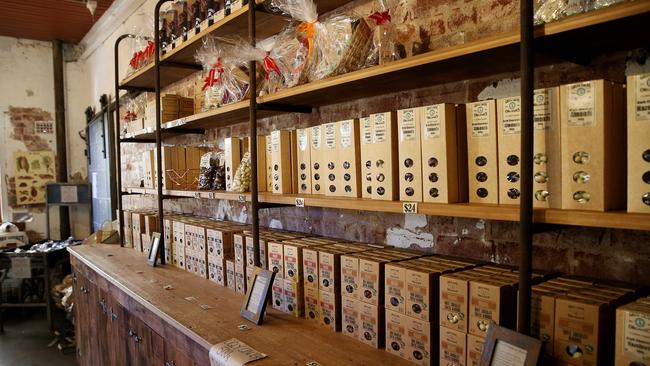
He says the Ardlethan property – which is red loam that receives an average annual rainfall of 430mm – is deficient in zinc, sulphur, phosphate, nitrogen and calcium, while pH post-cropping can be 4.5 and needs to be boosted to 6.5.
After soil testing and before cropping, the Druces generally add lime and gypsum (to boost calcium and sulphur, as well as pH), rock phosphate and a custom mix of minerals to boost zinc.
Crop rotation runs on a seven-year cycle, with wheat sown first, in April, and harvested in November and December. This is followed by another wheat crop, then barley or oats, after which soil is rested, run as pasture and sown with legumes, to bring nitrogen and oxygen to the soil. Any weeds that do appear are tilled into the ground.
“There’s two ways of doing things: come in and kill those things you don’t like; or create a soil environment that is suited to growing cereals not weeds,” Neil says. “For us, it’s a sequence. Once you get the soil right, crops grow well and you fight off disease pressure. Some weeds love acidic soil and that’s where the pH is also important. One weed, heliotrope, grows when soil is copper deficient.”
Neil says it is wrong to say organics can’t feed the world.
“The average wheat protein in the district is 10.5 per cent, whereas our farm is 17 per cent protein, and we have above average yields, so it’s both quantity and quality,” he says.
NEIL is the youngest of Alan and Jessie’s three children and after finishing school worked for two years on the farm.
He then won a scholarship to study in California, completing a Bachelor of Arts, majoring in theology and language, and combined his study with work in fine dining and tourism in the US. Neil then won another scholarship to study language in Germany.
Despite this academic bent, in 1985 he returned to Ardlethan and worked on the farm while also running a lime-spreading business until 2002, when he finally opened the mill to the public.
Neil says the concept for the licorice factory came about accidentally when father and son bought an on-farm mill, running it for about two decades to grind their wheat into flour to sell to retail and wholesale markets.
“But then, in the ’90s, the mill broke down and we started looking for another.”
Serendipitously, the old Junee flour mill, which had run from 1935 and had shut in 1974, was for sale. At the time, it was being used as storage.
“We were already doing flour and my idea was let’s make a product we can take to the customer. If I give you flour, there’s work for the customer to do, but if I give you licorice, the work has been done for you,” Neil says, adding that he was also keen to bring extra tourist dollars to the local economy.
“It’s also a product that has a shelf life of seven months, whereas a loaf of bread lasts seven days.”
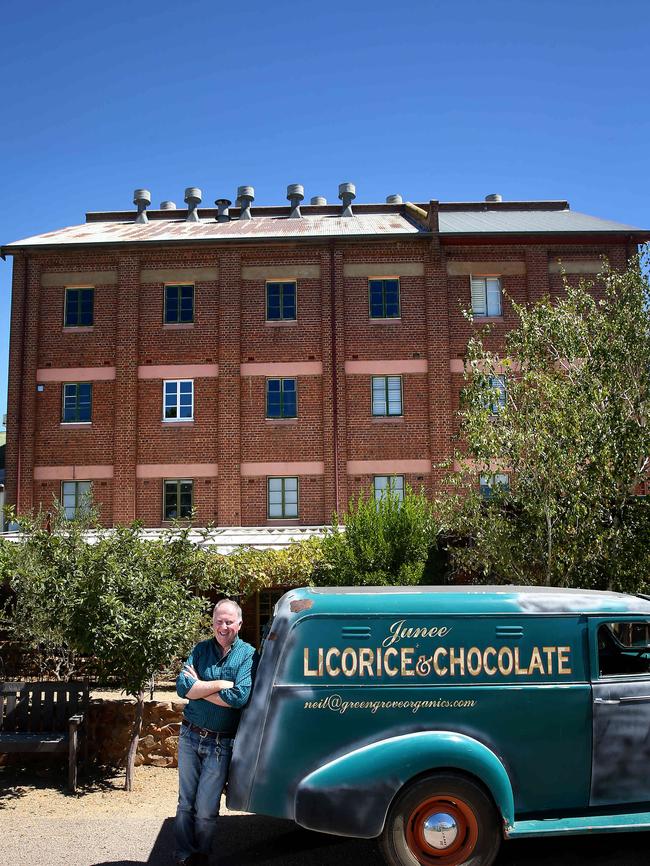
In 1998 the Druce family bought the old Junee building, milling their own flour in the on-site mill, but initially outsourcing licorice production in Sydney to get the business started.
After renovating the ground floor of the building, they bought the licorice-making equipment from Sydney and since 2002 have manufactured all the black stuff on-site, with the process also on show as an attraction for visiting tourists.
It’s a fascinating process. Flour from the farm’s wheat and spelt, as well as molasses, licorice root powder, rapadura sugar and aniseed are mixed together then cooked in a votator – a machine that cooks, cools and kneads the licorice. The mixture is then pushed through an extruder that turns the substance into ropes, which are cooled, and then a guillotine cuts them into lengths. Batches are made about five times a week and in three varieties: original, spelt and raspberry.
The licorice is sold in 180g, 500g or 2kg bags. Less than half is sold in the Junee factory, with the remainder sold across Australia, while about 7 per cent is exported.
Around the same time as the licorice equipment was moved into the old mill building, a ground floor restaurant and shop were built, alongside alfresco dining, as well as chocolate production. About 250 tonnes a year is processed, for those who don’t like licorice.
The five-level mill building is still being renovated, with a private residence added to the third floor. Last year the flour milling equipment was sold to make more space, and now the milling process is outsourced.
Neil says while he loves farming, the factory suits his love of interacting with people.
“I really like the idea of farming but it’s such an abused career,” he says. “Farmers don’t get the returns they should. This is the best of both worlds, farming but in an agritourism venture.”
Farm facts
JUNEE LICORICE AND CHOCOLATE FACTORY
Neil and Coral Druce run the Junee Licorice and Chocolate Factory, making licorice from wheat and spelt grown on Neil’s family farm – 1100 hectares at Ardlethan, called Green Grove Organics and run by his parents, Alan and Jessie Druce.
About 47 tonnes of wheat and spelt from the farm is processed into 38 tonnes of flour, which is one of the main ingredients that makes about 125 tonnes of licorice a year. The licorice sells for $5.50 for 180g, $10 for 500g and $24.50 for 2kg. It comes in three varieties: original, spelt and raspberry.
Alan Druce is regarded as a pioneer of Australian organics, having certified the Ardlethan farm in 1962.
Alan and Jessie grow wheat, oats, barley, spelt and rye, with the majority of crops sold through organic grain markets. The farm also stocks 500 Dorper-Suffolk sheep and a herd of 45 Red Poll cattle.
greengroveorganics.com.au

